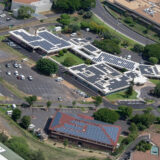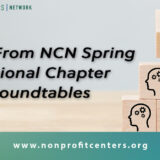5 Ways to Avoid a Real Estate Disaster
I’ve seen a lot of nonprofit real estate projects destabilize the organizations they are meant to bolster. That’s why I’m passionate about nonprofits undertaking careful feasibility planning when contemplating a space project. Whether your organization chooses to rent or buy, whether the project is for your organization alone or with a cohort of other nonprofits for a shared space – the key objective is to do no harm and make sure that your new space enhances your mission and doesn’t undermine it. Occupancy costs are second only to personnel in terms of nonprofit expenses, but even the most sophisticated nonprofits often get tripped up by poorly planned real estate projects.
A recent article by Ruth McCambridge in Nonprofit Quarterly, On Nonprofit Buildings & Other Big Bets: Lessons from One Foundation’s Folly highlights this problem. One would think that community foundations, like the one she cited, have access to highly competent real estate and capital campaign advisors when they take on substantial projects. However, the example she uses is interesting to me in that it illustrates that nonprofits of every size and shape need the same kind of highly technical support when undertaking these projects.
This follows a number of sales of nonprofit centers, including the Woodruff Volunteer Center in Atlanta, United Way HQ Sale Could Cause Waves for Nonprofits. I visited the 300,000 square foot center in Atlanta recently and learned that the good intentions around keeping rents deeply subsidized contributed to the ultimate decision to divest. As a shared space operator, when your main value to nonprofits is cheap rents, they leave when the market stumbles because they can get even better deals elsewhere. They treat the space as a commodity, rather than a community of nonprofits with a unique value proposition around collaboration. Unless reserves are being funded appropriately, the lower income generated from below-market rents can leave the shared space operator with insufficient funds to reinvest in capital needs for the building, eventually making it less competitive in the marketplace and making it harder to catch up when investment is critical.
The troubles faced by the Ventura County Community Foundation and the United Way in Atlanta could have been averted by five principles NCN offers in our Boot Camp and Energize: High Impact Shared Space trainings:
- Do a careful feasibility plan – nonprofits, like anyone developing real estate, need to take a hard look at how the project will be financed and supported in the long term, including cash flow proformas and a scenario analysis that anticipates a realistic Plan B if results don’t match projections.
- Don’t build until it’s funded – this is the Golden Rule in nonprofit capital projects. Your chance of hitting your fundraising goals fall precipitously if you are repaying debt. Better to have a project built in phases than to raise dollars for a building that has already been built.
- Beware below-market rents – we know that most nonprofit shared space centers offer below-market rents, but if subsidies go too deep you may not be able to cover costs or weather the troughs of real estate cycles.
- Build in reserves from the start – there is going to be wear-and-tear and boilers don’t last forever. Best to follow the standards of professional asset managers and build in repair and replacement reserves from Day 1. This will alleviate the temptation to borrow from other sources when a large expense comes up.
- Build a value proposition that isn’t about the real estate – if the only reason your tenants locate in your center is because of cheap rent, they will treat the space as a commodity. The most successful centers in our network have built a culture of collaboration so nonprofit tenants receive an intangible amenity by locating in the space and are less likely to abandon the ship when deals can be had elsewhere.
NCN hosts trainings each year on how to develop and maintain financially sustainable nonprofit facilities. This year we will be in San Francisco/Oakland in February, Atlanta in April and Toronto over the summer. We invite those interested in developing nonprofit facilities or interested in keeping their nonprofit facility financially sustainable, to join us to avoid the mistakes others have made and ensure that their space enhances their mission rather than undermines it.







